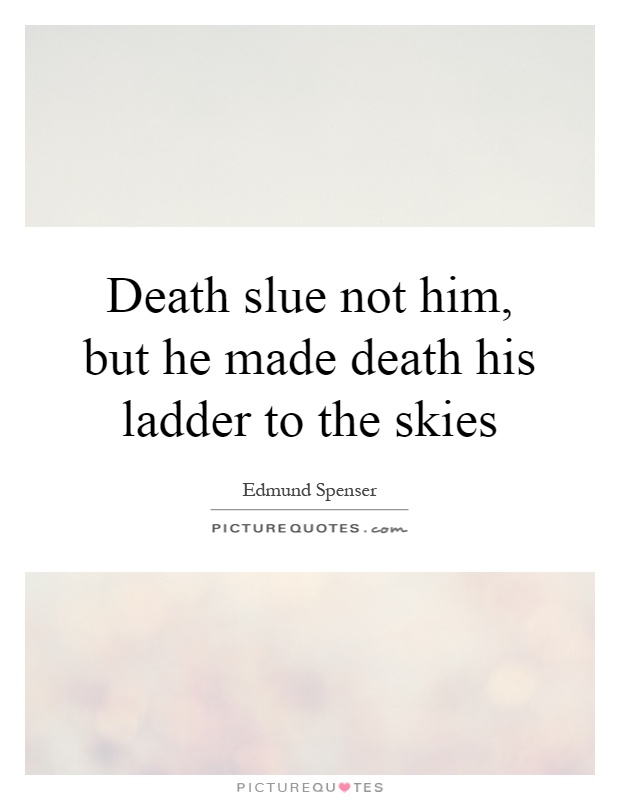Death slue not him, but he made death his ladder to the skies

Death slue not him, but he made death his ladder to the skies
The quote "Death slew not him, but he made death his ladder to the skies" is a powerful and poignant statement that encapsulates the life and legacy of the renowned English poet Edmund Spenser. Spenser was a literary giant of the Elizabethan era, best known for his epic poem "The Faerie Queene" and his contributions to the development of English literature.Born in 1552 in London, Spenser's early life was marked by hardship and struggle. Despite facing numerous challenges and setbacks, he persevered and pursued his passion for writing. His talent and dedication eventually led him to become one of the most celebrated poets of his time.
The quote suggests that death did not defeat Spenser, but rather served as a means for him to transcend earthly limitations and reach greater heights. In other words, Spenser's legacy and influence were not diminished by his passing, but rather enhanced and immortalized through his works.
Throughout his life, Spenser grappled with themes of mortality, spirituality, and the human condition in his poetry. His exploration of these profound subjects resonated with readers then and continues to resonate with audiences today. Spenser's ability to capture the complexities of human experience and emotion in his writing is a testament to his enduring relevance and impact.
In "The Faerie Queene," Spenser weaves together allegory, mythology, and romance to create a rich and intricate tapestry of storytelling. The poem is a reflection of Spenser's deep understanding of human nature and his belief in the power of literature to inspire and uplift.












 Friendship Quotes
Friendship Quotes Love Quotes
Love Quotes Life Quotes
Life Quotes Funny Quotes
Funny Quotes Motivational Quotes
Motivational Quotes Inspirational Quotes
Inspirational Quotes